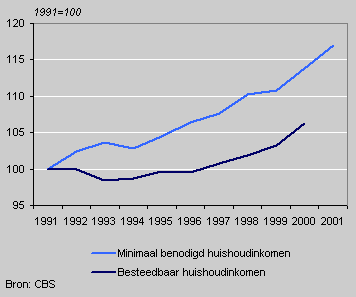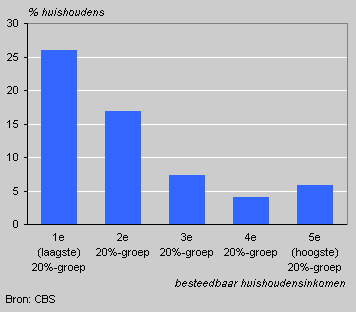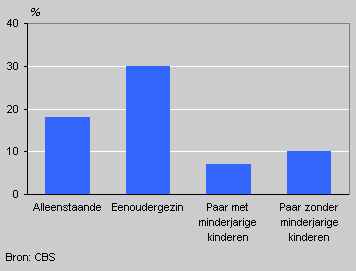One in eight households say they don't have enough income

In the period 1991-2001 the share of their income households say is the minimum necessary to get by on has increased. This is revealed by a comparison between the actual disposable income with the minimum income households say they need.
Disposable and reported minimum necessary household income

Households need more and more income
In 2001 households said they needed at least 16.6 thousand euro in income. Corrected for inflation, this is an increase of 2.4 thousand euro since 1991, 17 percent. The increase in the actual disposable income was smaller.
Increase in fixed costs
The increase in the minimum income people say they need is connected with the increased in fixed costs. In 1999/2000 households spent an average 8.5 thousand euro on these costs, 1.1 thousand euro more than in 1990/1991.
Lower and higher income groups
The more income households have, the more they say they at least need. Households in the lowest income group said they needed at least 11 thousand euro a year to get by, while those in the highest income group needed at least 23 thousand euro.
One in eight households received a net income in 2001 that was lower than what they said they needed. In the lowest income group one quarter of households said they did not have enough, four times as many as in the highest income group.
Net income lower than minimum needed, by income group, 2001

One-parent families often have too little income
One-parent families and single people often have less income than what they say they at least need. Some 30 percent of one-parent families said their actual income was not enough. For single people this was 18 percent.
Net income lower than minimum needed, by household type, 2001

Ger Linden